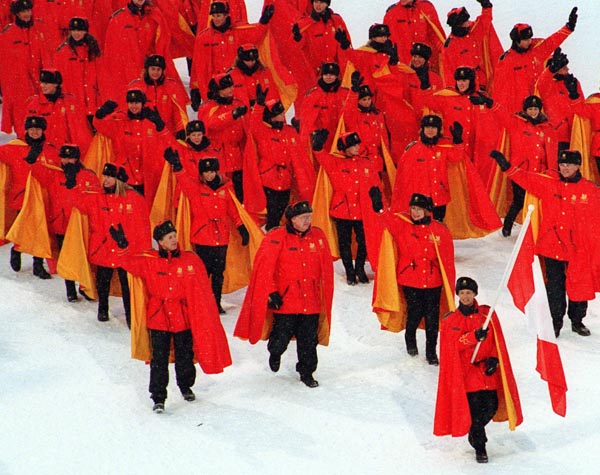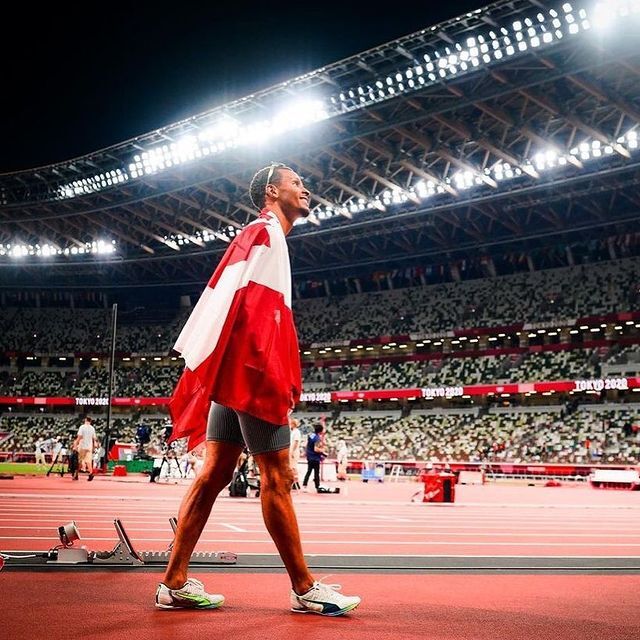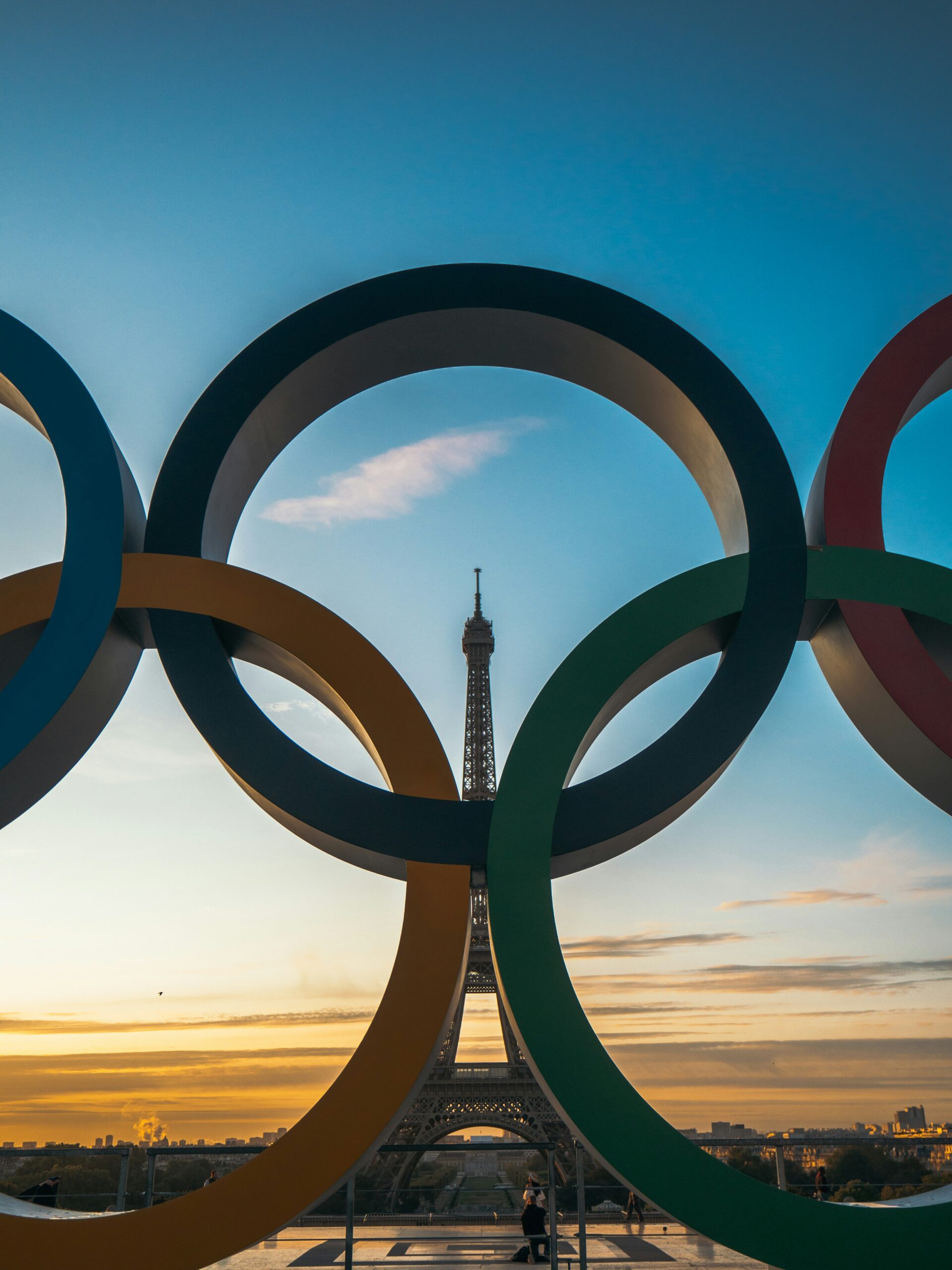How Andre De Grasse Stays Ready for the Spotlight
Slow burn.
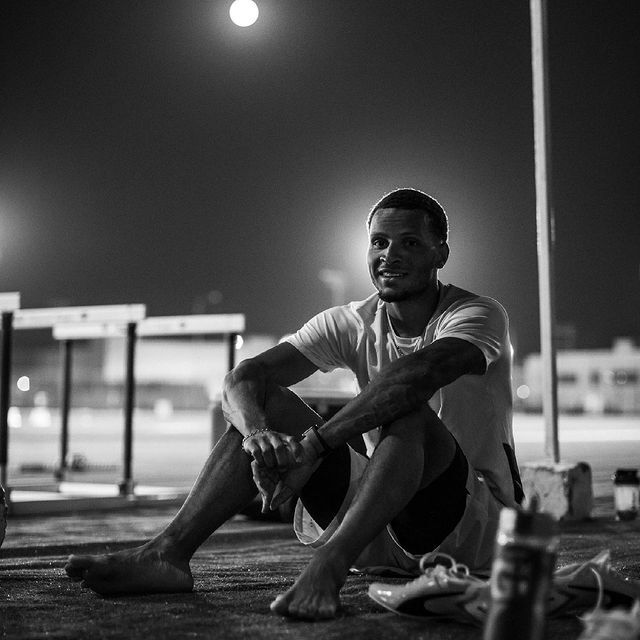
Image via Instagram @de6rasse.
For a few moments on the morning of August 1, it seemed as though all of Canada was fixated on a single race. It was a brief and unified focus, but during those turbulent 9.91 seconds and 100 metres of covered track, the country witnessed one of its greatest athletes return to the spotlight. And after those 9.91 seconds, Canada’s Andre De Grasse, a runner lauded as Canada’s future of the sport, stood on the podium to accept his bronze medal. Of course, this wasn’t the ultimate goal. Just three days later, the Markham, Ontario, native found himself back on the podium following a recording-setting 19.62 time in the men’s 200-metre race—but this time, he stood with a gold medal hanging from his neck.
For 26-year-old De Grasse, dreams of Olympic stardom were far from his mind when he began high school. Instead, De Grasse fell in love with basketball, even playing against NBA forward Andrew Wiggins before joining his school’s track team ever crossed his mind. And like most teenagers when presented with any new prospect, he was reluctant.
Finally, after a bet with a friend and a promise that there would be girls at the track races, De Grasse was convinced. He arrived at his first race wearing baggy basketball shorts and a pair of borrowed spikes. As he lined up alongside his fellow runners, De Grasse remained standing and ignored the starting blocks. To look at him would be to see the typical newcomer, the embodiment of inexperience. And yet just moments after the starting gun sounded, De Grasse crossed the finish line with just one competitor ahead of him. Armed with billowing shorts, borrowed shoes, and a wealth of naïveté, he took home second place.
Still, even with a growing penchant and natural ability for the sport, De Grasse’s path to becoming the superstar darling of Team Canada was not neatly paved. After making waves nationally and joining multiple speed academies in the years following his debut, De Grasse was offered the opportunity to run for Coffeyville Community College, where he spent his freshmen and sophomore seasons competing in an underfunded athletic program deep in the heart of Kansas. That two-year stint offered him the chance to showcase his talents to coaches at Division 1 USC, where his raw talent would be honed to compete at the highest collegiate levels and eventually lead him to the national stage.
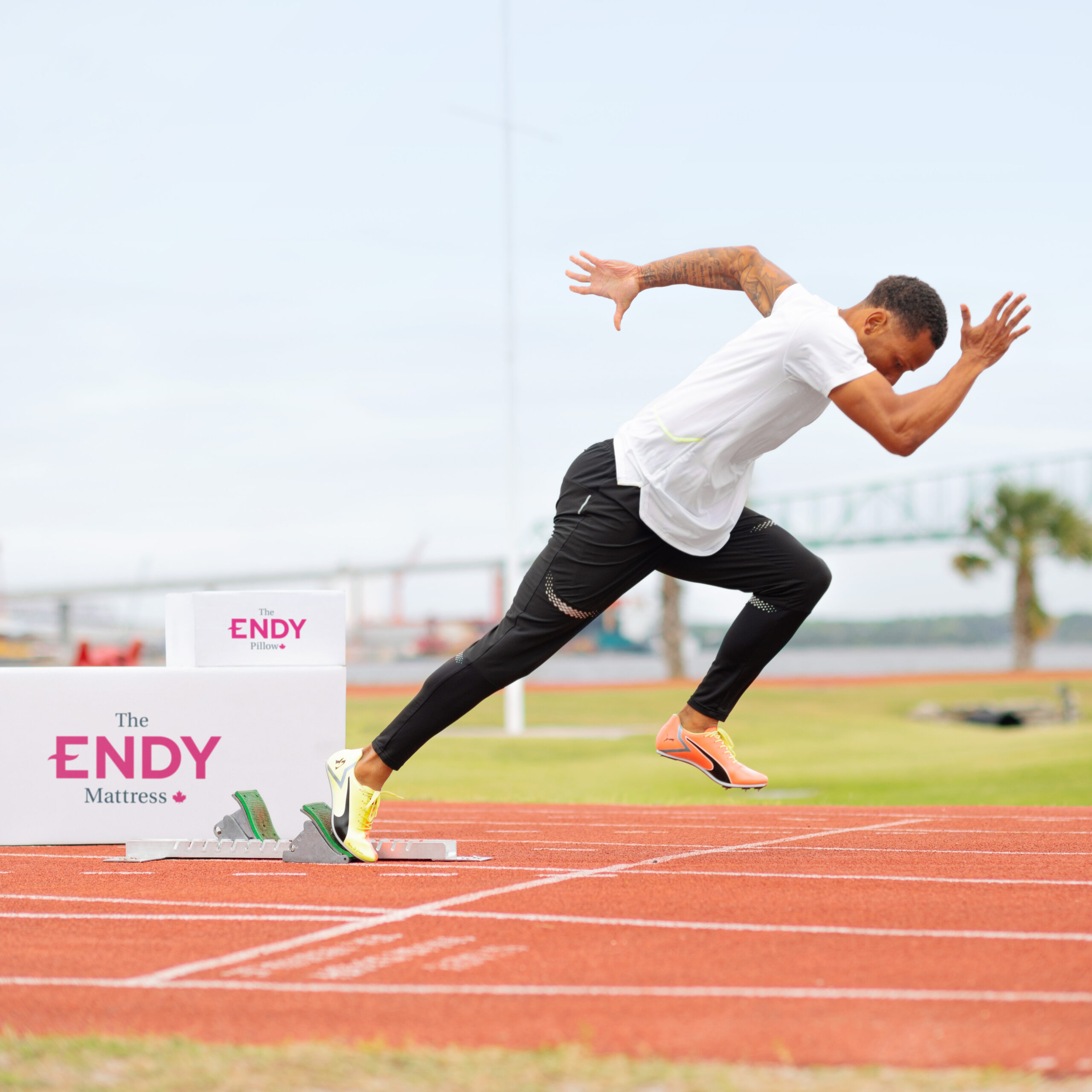
Day by day, second by second, he shaved off his time, with the baggy basketball shorts long retired. But it wasn’t until 2015 that De Grasse’s efforts paid off in the literal sense. He burst onto the world stage by winning a bronze medal in the 100 metres and 4×100-metre relay, earning him a multiyear contract worth $11.25 million, one of the largest in the sport. Then, following a strong season the next year, De Grasse was thrust into the biggest spotlight of his career: the Rio Summer Olympics.
Today, most of the country remembers how De Grasse’s debut played out. Of course, they don’t know the countless hours spent under the hot Kansas sun on an empty track to pave his way to Rio. They only know the viral few seconds of Jamacia’s Usain Bolt sharing a smile with De Grasse before sailing past the Canadian in the 200-metre semifinal, where De Grasse would win bronze.
But even after such a promising Olympic debut against his hero, De Grasse proved once again that the road to gold is far bumpier than what is shown in a single highlight. In 2017, he withdrew from the world championships due to a hamstring injury and didn’t make a full recovery until he changed coaches in late December the following year. After months of gruelling rehab, he finally returned to form at the 2019 World Championships and took bronze in the 100 metres and silver in the 200 metres. Before running his 200-metre race in Tokyo, De Grasse had captured a medal in every event he’d competed in over two games. And yet, gold still eluded him.
In his 100-metre race this year, De Grasse was forced to face even more adversity, starting on an island in Lane 9 and stumbling into a false start. After years of preparation, it was clear in the first few seconds of the race that the gold was out of reach. Most would crumble under the disappointment of seeing yet another chance at history barely slip away, but not De Grasse.
Days later, he returned to the starting blocks. Once again, as he had in high school, Coffeyville, Rio, and every other stop along the way of his long and arduous journey, he learned from his mistakes. As the starting gun sounded, De Grasse surged down the stretch in Lane 6, precise and explosive strides propelling him toward the finish. The moment he crossed the tape, he knew he’d finally broken through. The gold was his.
Afterward, De Grasse and all of Canada celebrated his record-setting 19.62 time, and rightfully so. Short-distance running is a unique sport in that the highlights are the same length as the event itself. The moment is fleeting. Speed is king, and shaving precious milliseconds off one’s time is key. Yet as we applaud one of the country’s most-decorated Olympians, perhaps it shouldn’t be his lack of time that is celebrated but rather its abundance: the countless hours spent in baggy basketball shorts and borrowed track shoes, early mornings and late nights training in an empty stadium in Coffeyville, the months of rehab endured for third-place medals.
After realizing he’d become the first Canadian to win the 200-metres since Percy Williams in 1928, De Grasse celebrated briefly before collapsing onto his back, lying flat on the track with his hands over his face, reflecting on the many marathons it took to win one of the greatest sprints in Canadian history.
“Honestly, any time I make the podium is a blessing,” says De Grasse, “I am so grateful to represent Canada and can feel the support from Canadians around the world.”

